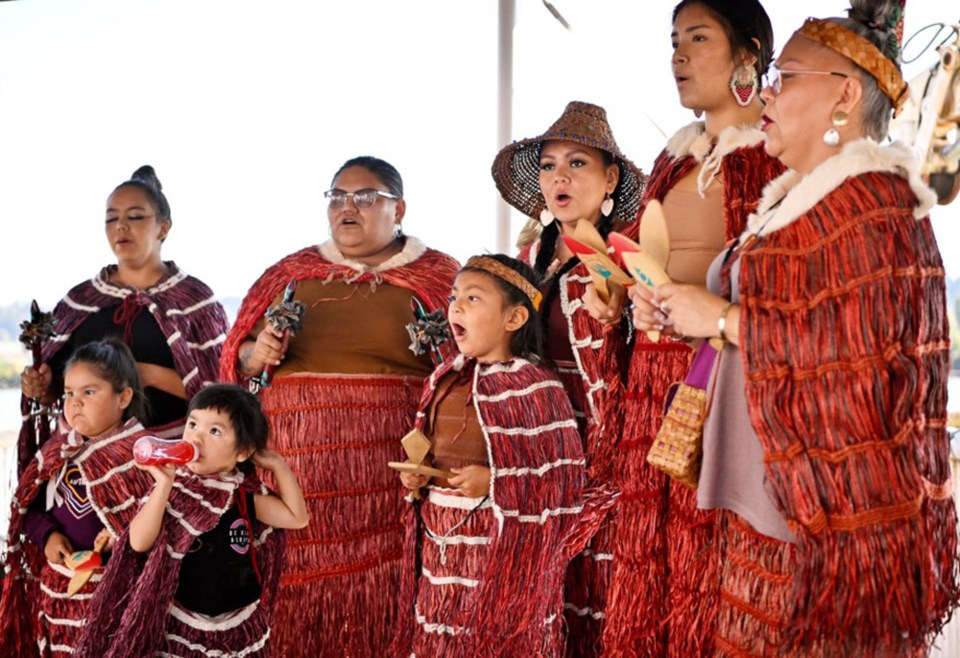The Indigenous population of New Westminster remains small but steady, according to the latest census data.
Statistics Canada’s 2021 Census Profile for New Westminster shows 2,425 residents reporting Indigenous identity, or 3.1 per cent of the city’s population. That’s holding fairly steady from the last census, in 2016, when 2,295 residents (3.3 per cent) reported what was then categorized as Aboriginal identity.
In 2021, those numbers broke down as follows:
- First Nations: 1,275
- Métis: 1,015
- Inuk (Inuit): 45
- Multiple Indigenous responses: 60
- Other Indigenous responses: 30
Indigenous languages spoken only by a few
When it comes to languages spoken in New Westminster, only a small number of local residents report speaking an Indigenous language.
Just 20 people report having an Indigenous language as their mother tongue — with respondents reporting Cree, Ojibway and Athabaskan (Dakelh/Carrier) languages.
Regarding knowledge of language, 45 people reported having knowledge of an Indigenous language (Cree and Ojibway languages).
Just 10, however, reported an Indigenous language as one spoken regularly at home.
In New Westminster, there were no reported speakers of Salish languages, of which Halkomelem — an ancestral language of the territory now known as New Westminster — is one.
In all of Canada, just 185 people report Halkomelem as their mother tongue and 50 report it as the language spoken most often at home, while 1,415 report knowledge of Halkomelem — up from 1,060 in 2016.
What does Indigenous identity mean?
As defined by Statistics Canada, the category includes those who identify as First Nations, Métis and/or Inuk, those who report being Registered or Treaty Indians (registered under the Indian Act of Canada) and/or those who report having membership in a First Nation or band.
Follow Julie MacLellan on Twitter @juliemaclellan.
Email Julie, [email protected]



